In an earlier post I looked at how I have finally accepted the inclusion of people in my images and how I sometimes encourage subjects to use torches (Dive lights for US readers). In this post I’m sharing images that I think were helped by some underwater wattage.
In the first image, and the one below, without the dive light, the diver would just have been a passive shape in the background, lurking you could say. By using the light the diver is linked, in our minds, to the well-lit foreground. They have become an active subject in the image, rather than a passive one. Obviously it is my camera gear that provides the overwhelming bulk of the illumination, but I’m happy to help create an illusion.
In the image below on a Caribbean wreck, the diver’s light once again helps with the impression that he is exploring and searching the wreck. Clearly that’s not the case, when you think about it, but I think when considered with the text that accompanied the image, the lighting strongly suggested an exploration of the deep. In reality his light is quite feeble and I’m using a single flash to only illuminate the wreck ahead of him.
It’s a similar story with the image below from the Red Sea. The diver appears to be doing something, he’s no longer a passive object and has a role in the image.
Sometimes I include a diver with a light to simply add an extra element to an image. The shot above from the Med shows an aircraft engine shot from a plane during the last war. Its origin is somewhat unclear. I wanted to capture the colors of the marine life as well as the form of the propeller, but it was lacking something, until I signaled my guide to move to the rear and get behind the subject. I think it works, but do you agree? Maybe I’m overthinking it?

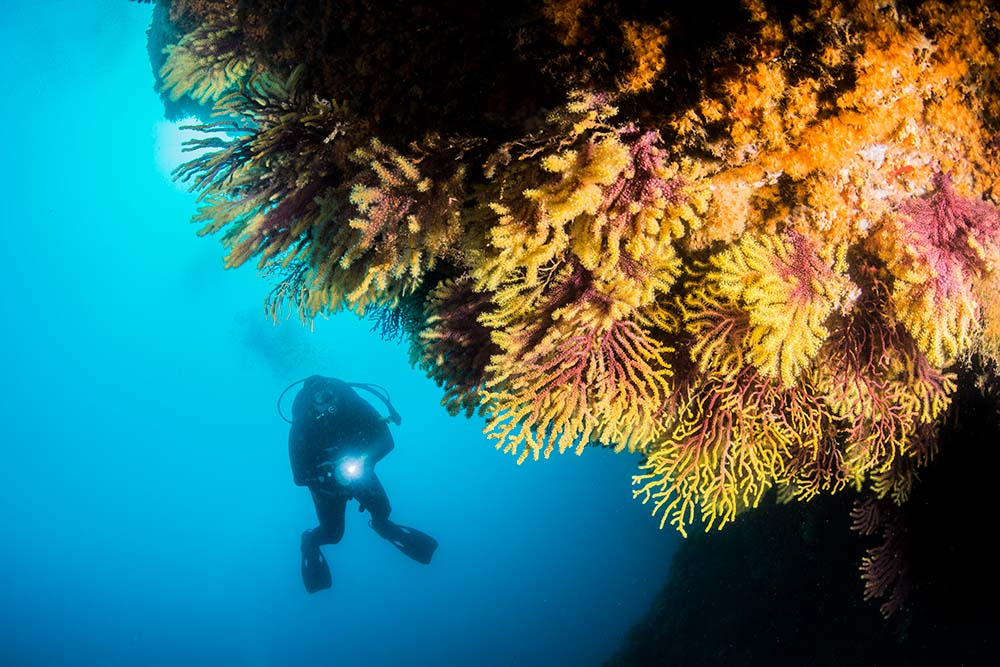
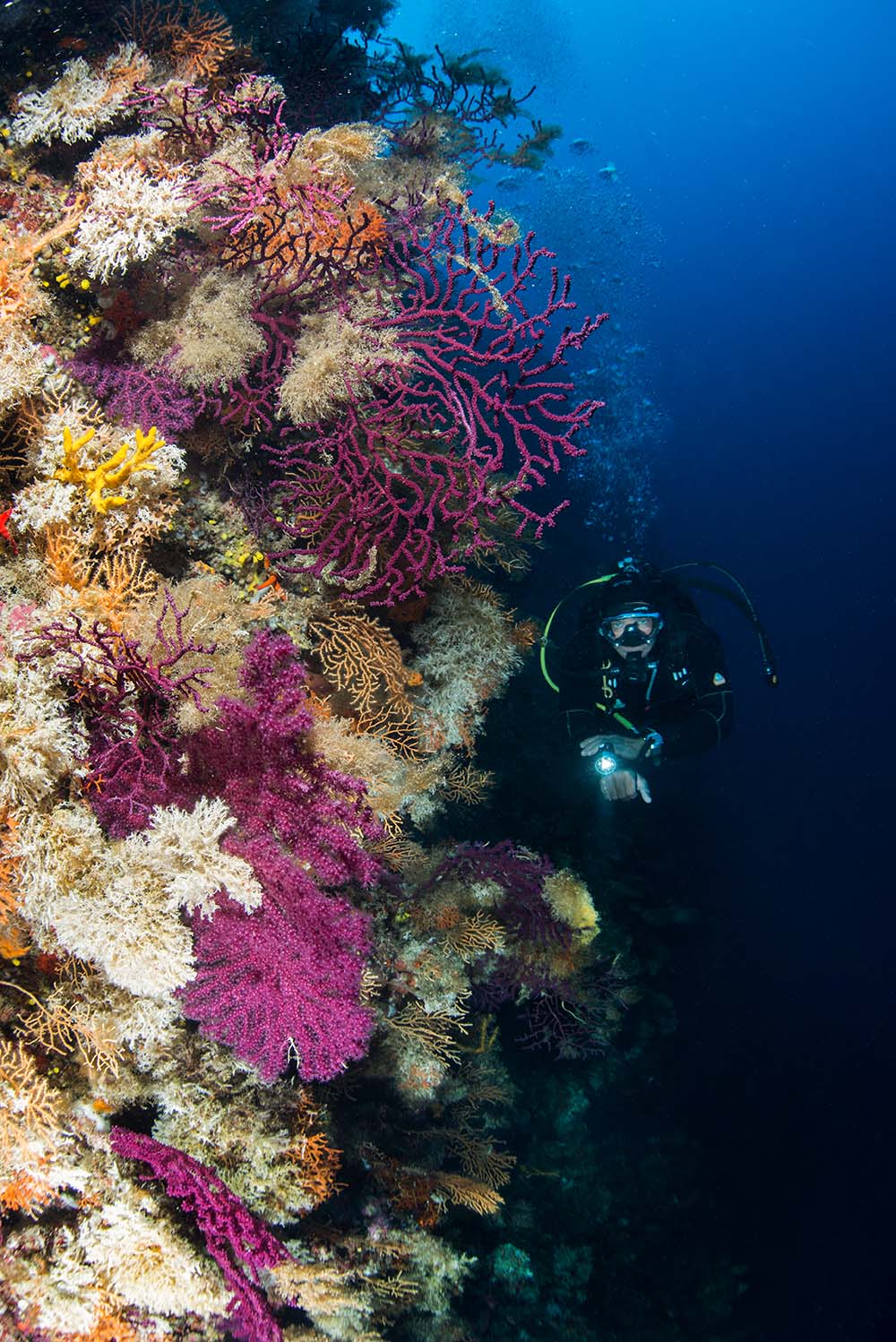
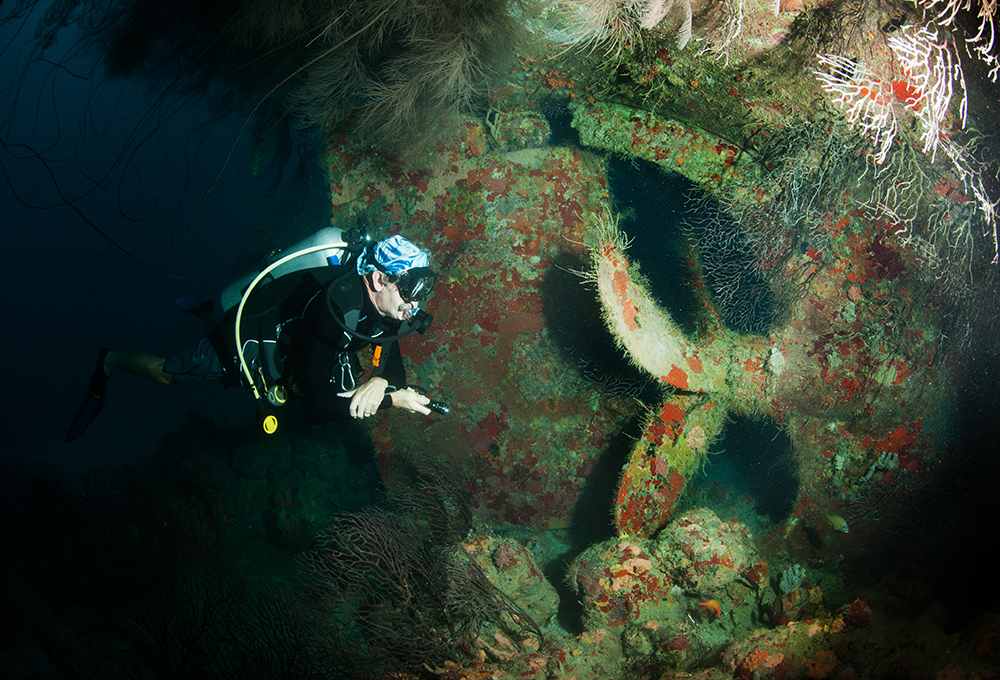
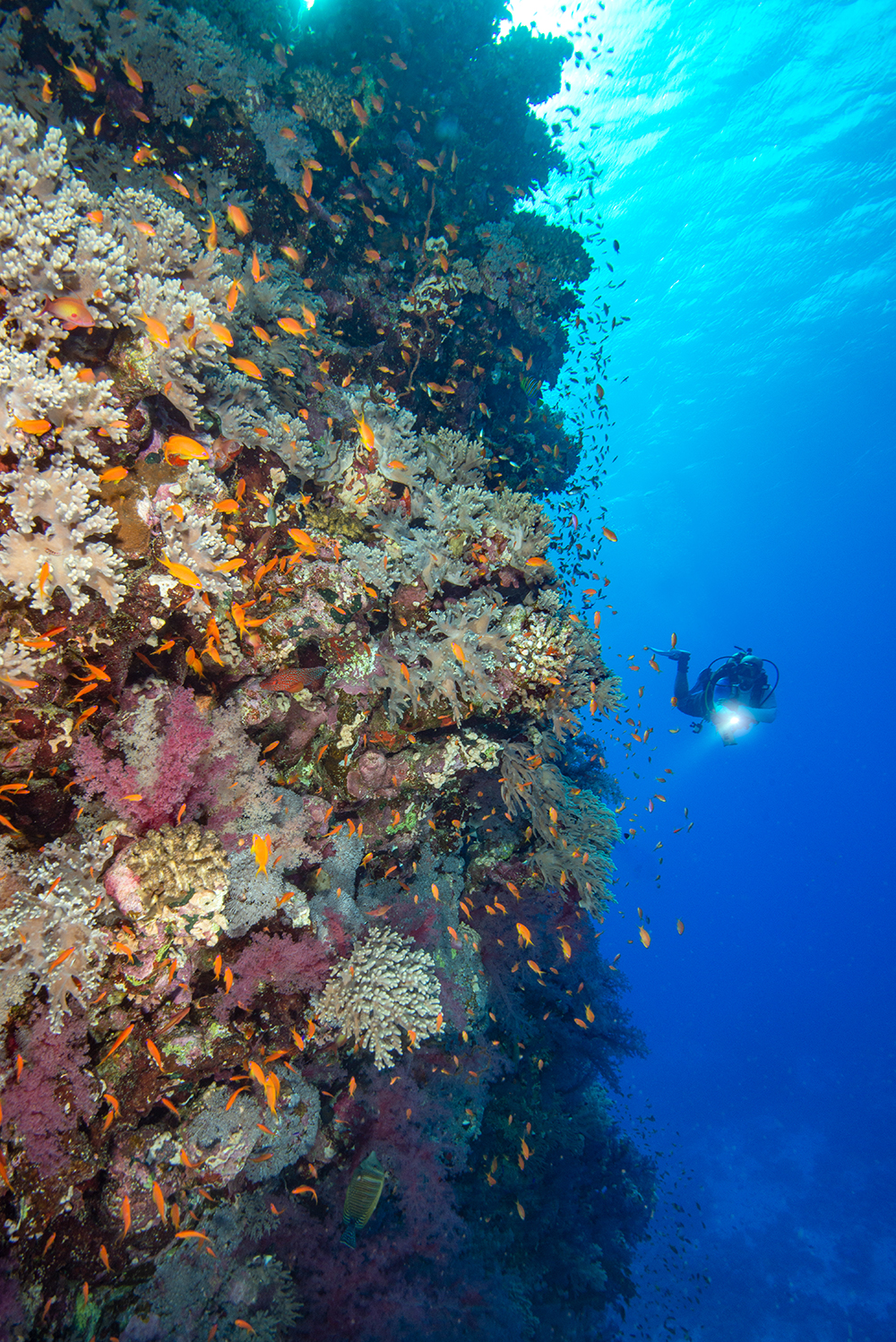
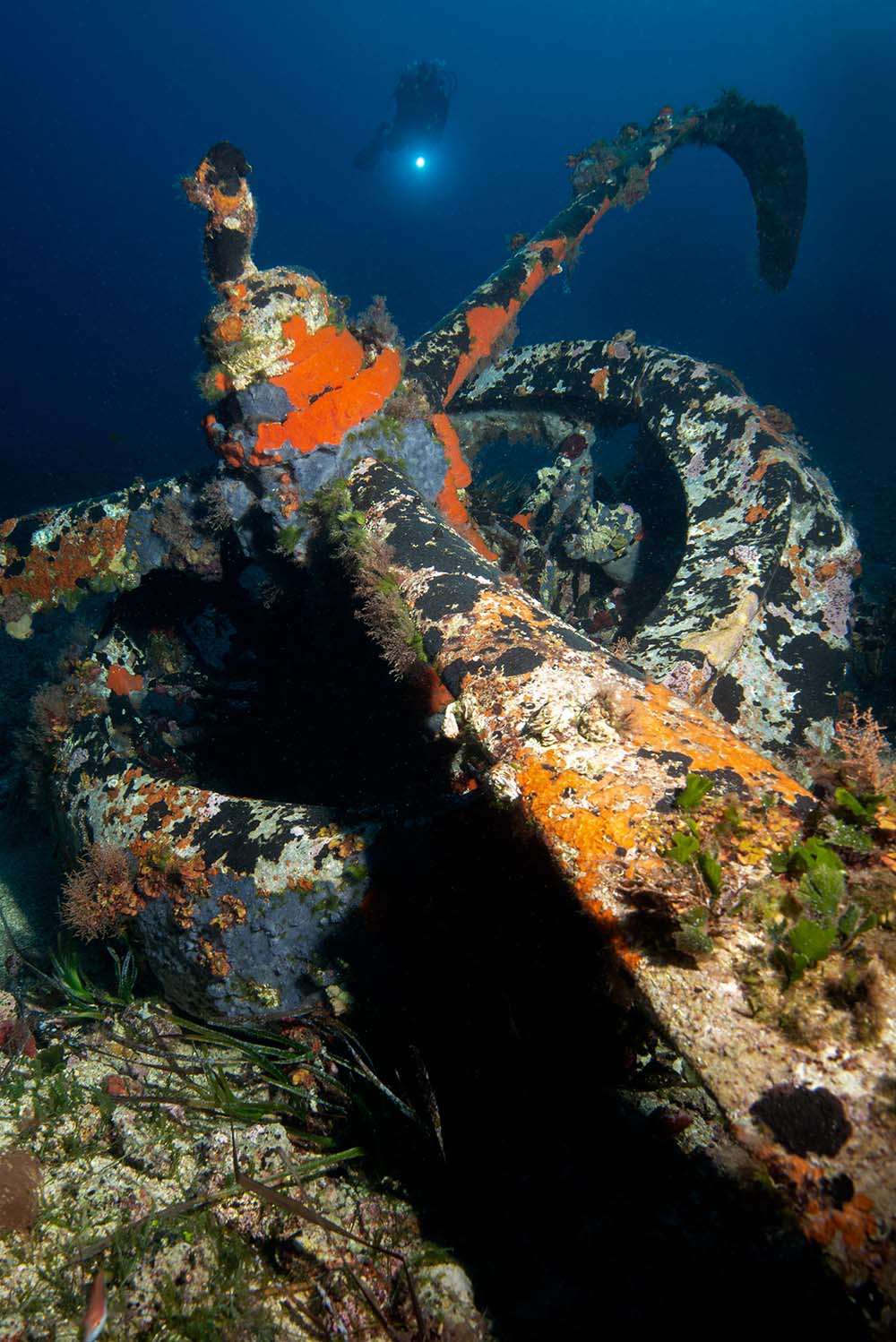









0 Comments